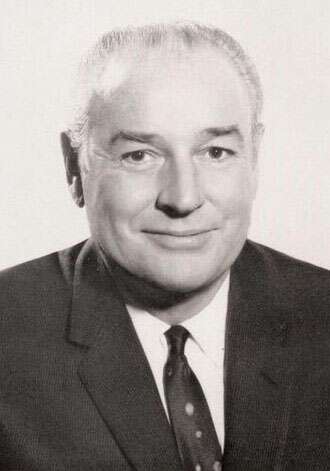The largest shift in Arkansas politics since reconstruction days occurred with the election of Winthrop Rockefeller in 1966. Rockefeller, the grandson of Standard Oil baron John D. Rockefeller, was the first Republican elected as governor in nearly a century. The changes and reforms brought about during his administration impacted the course of history for the state and began the true two-party system that exists today.
Winthrop Rockefeller was kind of an anomaly for his social status and time. He was born into extreme wealth and social privilege, but always seemed rather reluctant to fit into the jet set into which he was born. He withdrew from Yale University during his third year of study without taking a degree and went to work in the oil fields. Surprisingly, he turned down upper echelon jobs in the business and took a job as an apprentice roughneck working the oil fields with the common man. Later, he described this as some of the happiest days of his life.
In 1941, nearly a year before the U.S. entered World War II, Rockefeller again showed his independence, and perhaps his rejection of his family's lifestyle, by joining the Army as a private. He later completed officer training and eventually worked his way up to commander of H Company, 305th Infantry.
Described as a swashbuckling commander with a dashing smile and a handlebar mustache, he saw considerable action in the south Pacific. He was in the Battle of Guam and Okinawa, suffering burns from a kamikaze attack in the latter. Eventually, he reached the rank of lieutenant colonel and received a number of metals along the way. It was during this time he meet and became friends with an Arkansan named Frank Newell. Their friendship became one of the defining moments of Arkansas history.
In 1953, following an unhappy marriage and divorce, he visited Frank Newell in Arkansas. Many reasons are given for his attraction to Arkansas. Among those were his desire to be free from the expectations of his family, his political desires, his philanthropic nature, or perhaps his attraction to a simpler life. For whatever reason, his life from that point on intersected with Arkansas history.
Rockefeller bought several hundred acres of land on Petit Jean Mountain and established an enterprising cattle ranch on the worn-out cotton lands. He developed a model ranch, which featured Santa Gertrudis cattle purchased from the King Ranch of Texas, and was geared to research and the establishment of best farming practices.
Within a short time, Rockefeller became involved in politics. He was first appointed to the Arkansas Industrial Development Commission and was wildly successful in bringing industry to the state with his national and international ties.
Arkansas was a part of the one-party Democrat south. In the 1960s, less than 11% of the state identified as Republican. For more than a decade, the party had been led by conservative Orville Faubus and he controlled politics at every level down to city government. Rockefeller ran against him in 1964 and lost, vowing to return for another run in 1966.
In a twist from the modern platforms for the two parties, in the 1960s the Democrats were the conservative and traditionalist. They identified with segregationists. In fact Justice Jim Johnson, the Democrat candidate in 1966, was a follower of George Wallace. Rockefeller on the other hand advocated for reform, revision of the state constitution, teacher tenure, kindergarten and a state minimum wage. He won in 1966 and was able to make headway in all of the above.
Rockefeller successfully completed integration of Arkansas schools and was the only Southern Governor to hold a public mourning at the death of Martin L. King Jr. and helped institute the Freedom of Information Act.
Rockefeller served two terms as governor and upon his death was cremated and buried on Petit Jean Mountain.
Today, much of Winrock farms has been deeded to the University of Arkansas as the Winrock International Research and Training Center. It continues Rockefeller's vision for livestock research, rural development and center for educational improvement.
 Winthrop Rockefeller turned down upper echelon jobs in the business and worked as roughneck working the oil fields with the common man. Following a visit to a friend in Arkansas in 1953, his life from that point on intersected with Arkansas history, and he became the state's first Republican governor in nearly a century. (Courtesy Photos)
Winthrop Rockefeller turned down upper echelon jobs in the business and worked as roughneck working the oil fields with the common man. Following a visit to a friend in Arkansas in 1953, his life from that point on intersected with Arkansas history, and he became the state's first Republican governor in nearly a century. (Courtesy Photos)
